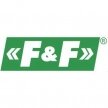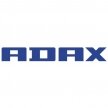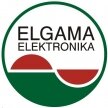-
Product Catalog
- Security and Surveillance Systems
- Automatic Circuit Breakers for Direct Current (DC) Circuits with Integrated Overload, Short-Circuit, and Voltage Stabilization Protection Functions
- Lighting with the help of electrical energy
- Automation and Control Systems
- Sealing profiles | rubber | gaskets | strips
- Inflatable Liquid Storage Tanks | Reservoirs | Bladders
- Inflatable rubber plugs for sealing high-pressure plumbing pipes
-
Electrical distribution and installation
- Electrical power | power cables | wires with copper conductors
- Electrical Energy Supply | Distribution Panels | Boxes | Accessories
- Smart Automated Products | Control | Transmission | Detection
- Modular equipment installed in electrical distribution boxes | panels
- Smart electrical network analyzers
- Reliable power management | stabilization | control | uninterrupted supply
- Fuse holder blocks
- Fuse disconnectors
- Fuses
- Electrical installation components
- For domestic | professional use Extension cords | power supply extensions
- Industrial | domestic socket outlets | plugs | adapters for electricity supply
- High Voltage Equipment | Components 6kV | 10kV | 12kV | 20kV
- Underground Power Transmission | Overhead Power Lines
- Surge Protection and Lightning Protection
- Solar Energy Generation and Management Equipment
- HVAC control solutions for heating and ventilation.
- Special products and accessories
- Other products
- Safety tools
- Quality used products
Fuse holder blocks
-
Fuse and circuit breaker holder blocks are electrical devices designed to hold and protect fuses and circuit breakers in electrical systems. These blocks are essential components that ensure a safe and reliable supply of electrical power in industrial, commercial, and residential applications. They help organize electrical equipment, allowing for easy access and replacement when necessary.
-
Read more
Key Features:
Structural Design: Mounting blocks are often made from high-quality, durable materials like ABS plastic or metal, ensuring strength and resistance to environmental factors.
Multiple Fuse Storage: The blocks can accommodate several fuses or circuit breakers, allowing for the organization and centralization of protection systems.
Convenient Access: The design of the blocks often allows for easy access and replacement of fuses, reducing the time needed for repairs or maintenance.
Protection Features: Most mounting blocks have additional protection features, such as integrated indicators that show whether the fuse is operating correctly or if there are faults.
Compact Design: The blocks are generally compact, allowing for easy integration into existing electrical systems, ensuring space savings.
Mounting Options: The mounts can be installed on DIN rails or directly onto electrical panels, providing users with flexibility.
Application Areas:Industry: Mounting blocks are widely used in manufacturing equipment to protect electric motors and other devices from overloads and short circuits.
Commercial Spaces: Used in the electrical systems of offices and shopping centers, where there is a need to centralize protection and efficiently manage electricity.
Residential Systems: The blocks are used in homes to ensure a safe and reliable power supply system, allowing users to easily replace fuses.
Advantages:Safety: Mounting blocks help protect electrical systems from overloads and short circuits, thereby reducing fire risk.
Convenience: Easy access to fuses allows for quick and efficient maintenance.
Organization: Centralized fuse locations help maintain order in electrical panels and system devices.
Disadvantages:Cost: Fuse and circuit breaker mounting blocks may be more expensive than simple fuse holders, but their advantages and durability often justify the investment.
Required Technical Knowledge: Although installation is not complicated, some knowledge of electrical systems may be necessary to properly configure and use these blocks.
Fuse and circuit breaker mounting blocks are essential components for ensuring the safety, efficiency, and organization of electrical systems. They help reduce the risk of failures, simplify maintenance, and improve electricity management in industrial, commercial, and residential spaces.No items found.
US IN SOCIAL NETWORKS
























